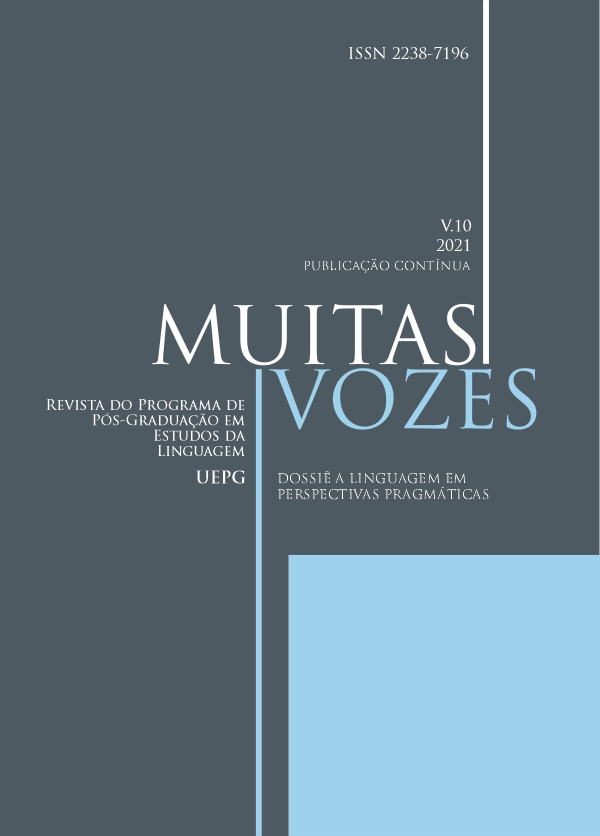SOBRE A PERCEPÇÃO TARDIA DA IRONIA NA “SEGUNDA FASE” DA FICÇÃO DE MACHADO DE ASSIS: DESCRIÇÃO E INTERPRETAÇÃO DO PROBLEMA À LUZ DA TEORIA DA RELEVÂNCIA
Resumo
O artigo discute a ironia na obra de Machado de Assis, tomando como objeto Dom Casmurro e sua fortuna crítica. É sabido que a crítica literária não destacou a ironia machadiana, presente particularmente nos romances da segunda fase da sua produção, até a segunda metade do século XX. Veremos que isso mudaria em conjunto com mudanças nas condições do elogio crítico, com a emergência de uma atenção renovada à estética textual e à crítica social machadiana. Tomando como referência certas passagens de Dom Casmurro, o artigo se apoia na teoria da relevância de Sperber e Wilson para argumentar que 1) o privilégio de uma atitude irônica, em detrimento do oferecimento de enunciações ostensivamente irônicas, e 2) o tratamento de noções não necessariamente presentes no saber doxástico compartilhado com o público, explicam a baixa percepção inicial da ironia como modo organizador da ficção machadiana. Isso fundamenta a hipótese de que apenas mudanças no contexto de recepção, com a emergência de novas condições de elogio crítico, mudariam aquela recepção inicial, reconfigurando a interpretação da sua produção ficcional.
Downloads
Downloads
Publicado
Como Citar
Edição
Seção
Licença

Este obra está licenciado com uma Licença Creative Commons Atribuição 4.0 Internacional.
Transferência de direitos autorais: Caso o artigo submetido seja aprovado para publicação, JÁ FICA ACORDADO QUE o autor AUTORIZA a UEPG a reproduzi-lo e publicá-lo na REVISTA MUITAS VOZES, entendendo-se os termos "reprodução" e "publicação" conforme definição respectivamente dos incisos VI e I do artigo 5° da Lei 9610/98. O ARTIGO poderá ser acessado tanto pela rede mundial de computadores (WWW - Internet), como pela versão impressa, sendo permitidas, A TÍTULO GRATUITO, a consulta e a reprodução de exemplar do ARTIGO para uso próprio de quem a consulta. ESSA autorização de publicação não tem limitação de tempo, FICANDO A UEPG responsável pela manutenção da identificação DO AUTOR do ARTIGO.



